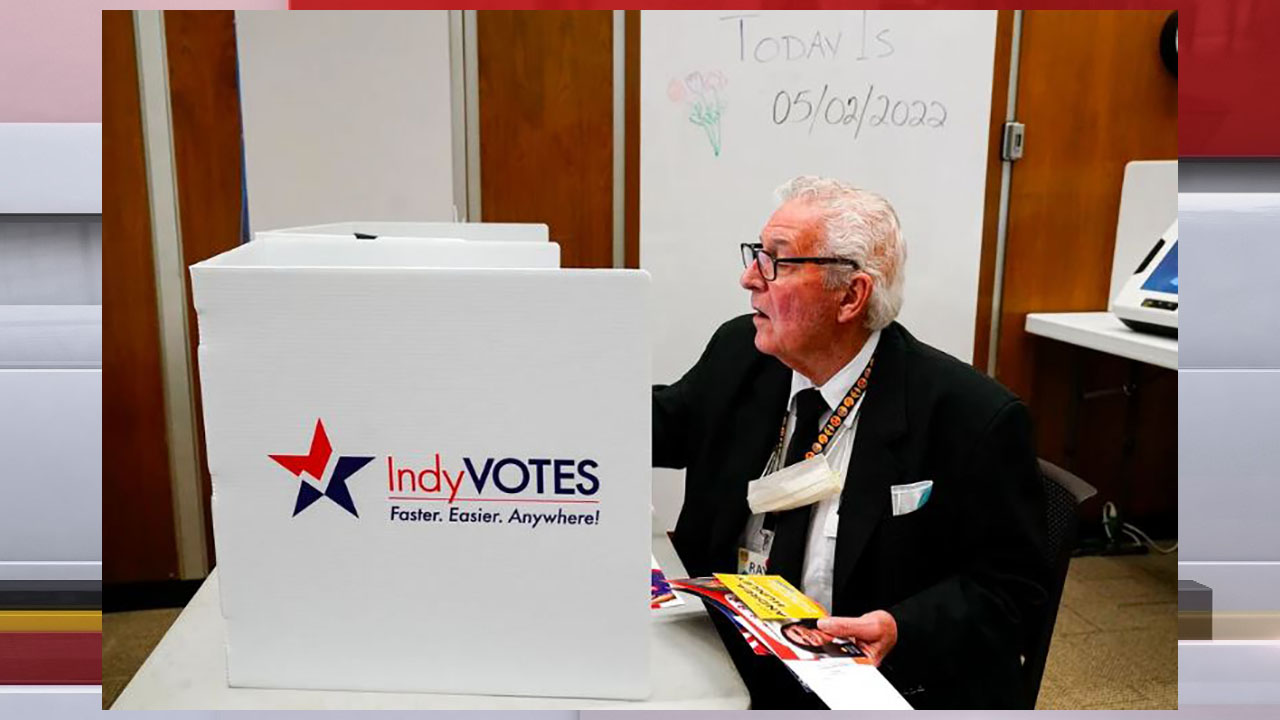Indiana Republicans back switch to partisan school board elections
INDIANAPOLIS (AP) — Indiana Republicans forged ahead Wednesday with a proposal that would upend the current nonpartisan school board elections across the state despite opponents arguing the change would further inject politics into local schools.
The Indiana House elections committee voted 6-4 along party lines to endorse a bill to establish a system allowing a decision by each of the state’s nearly 300 school districts on whether to require candidates to declare a political party. Each district’s decision would be made through either a voter referendum or school board vote. It would be up to those votes whether candidates would be required to win a party’s May primary in order to appear on the November general election ballot.
Bill supporters said they believed having candidates identified by political party would give voters more information to consider and increase transparency in what are already often politicized election races.
Some opponents argued allowing a district-by-district decision would lead to a messy patchwork across the state and confuse voters.
A state Senate committee heard testimony last week — but has not yet voted — on a different proposal that would require school board candidates to identify themselves on the ballot by political party or as an independent but not have them run in party primaries.
Other bills in recent years calling for partisan school board elections in Indiana haven’t advanced in the Republican-dominated Legislature. Those elections, however, have gained more attention across the country as parents raised complaints over issues such as COVID-19 policies, classroom discussions of race and sexuality and the removal of offending books.
Greg Brown, who was endorsed by the local Republican Party in winning a Carmel School Board seat last year, spoke in support of the switch to partisan elections before both the House and Senate committees. He argued that party affiliation was important information for voters who he said often told him that they didn’t know much about the candidates.
“They would frequently ask me, ‘What party are you in?’ And I tell them and they’d say, ‘That’s good enough for me,’ so it’s an important filter,” Brown said.
The Indiana School Boards Association and the Indiana State Teachers Association are among education groups opposed to the change, voicing concerns about increased partisanship and the longstanding difficulties of finding candidates willing to run in smaller districts.
Several current school board members said they didn’t know the political leanings of others on their boards and worried partisan elections would make board members beholden to political parties.
“If we were required to have partisan school board elections, I believe it’s possible that pressure could be applied in regarding who we would hire and how we would be expected to vote at school board meetings,” said Linda Singer, who said she’s been a member of Howard County’s Western School Board for 39 years.
Some supporters of partisan elections argued that the current system allowed groups to “shroud leftist candidates” and let those running for board positions withhold information about themselves from voters. At least nine states now have some form of partisan local school board elections, advocates said.
Michael Morris, of the conservative group Lafayette Citizens in Action, called partisan labels “truth in advertising” for school board candidates.
“From what I can tell, that will result in more robust school boards who will be more proactive about looking into curriculum and administration,” Morris said.
